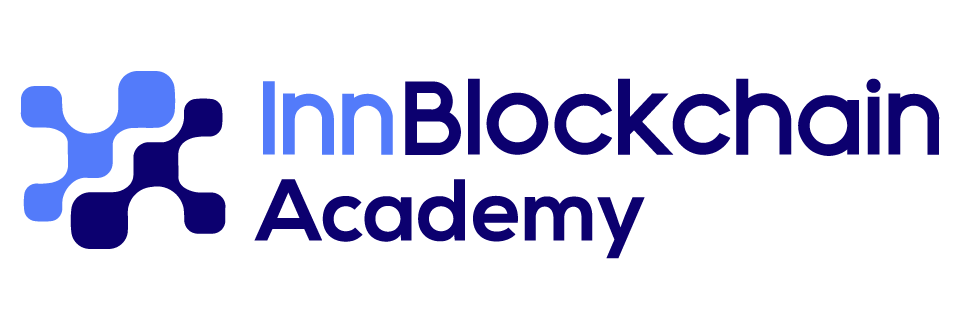Introduction
Blockchain is a technology which is gaining high traction in the industrial era. Nowadays, supply chain management systems, banks, healthcare, voting systems, and more businesses use blockchain. This is mainly because of its high transparency and security.
Over the years, we have noticed prominent evolutions in the development and deployment of e-voting systems. One of the promising innovations in this era is the use of blockchain technology in the voting system.
In this article, let’s see the challenges of the traditional voting system and how blockchain technology is going to transform the voting system, and how blockchain benefits for voting system. I hope the upcoming sections will clear up all your doubts.
Importance of secure voting systems
Political institutions shape the rules under which democracy is rehearsed. It is strongly argued that the voting system is the one that decides the political institution of the country. Voting systems are most necessary for upholding the integrity of democratic processes and ensuring that the voice of the citizens is heard without manipulation or interference. The voting system translates the casted votes into seats in the legislative assembly, the voting system is the one which decides who is elected and which party gains the power to rule the country.
The voting system guards the fundamental principles of democracy and provides freedom of rights for fair representation. By ensuring the accuracy, confidentiality, and transparency of elections, secure voting systems boost trust in government institutions and encourage civic engagement. Moreover, they serve as a bulwark against potential threats, including hacking, fraud, and coercion, thereby preserving the legitimacy of electoral outcomes and the stability of democratic societies. Ultimately, secure voting systems are indispensable in safeguarding the democratic rights and freedoms of citizens worldwide.
Challenges of the traditional voting systems
1. Security concerns
Traditional voting systems are expose to fraud, hacking, and tampering. Manipulation or unauthorized access to paper ballots will reduce the integrity of elections.
2. Human error
Manual vote counting will definitely result in inaccuracies or errors. Miscounted or misplaced ballots will lead to disputed election outcomes.
3. Inefficiency
Traditional voting approach needs manual powers, which is highly time-consuming and costly. Spending time on counting paper ballots will definitely delay the announcement of election results.
4. Limited accessibility:
Some people might face issues in accessing the polling stations, like distant locations or physically disabled persons. This may cause voter disenfranchisement.
5. Voter verification:
Examining the voter’s identity in traditional systems is highly challenging. Moreover, you can’t ensure that individuals cast only one vote at a time.
6. Transparency:
Lack of transparency in the traditional vote-counting process. This leads to fraud or suspicions of unfairness.
7. Cost:
Setting up the polling station, printing paper ballots, and employing staff for vote counting. All these will definitely incur high costs.
8. Limited voting options:
Paper-based voting systems won’t provide flexible voting options like early voting or voting in case of absence in the situation. All these stop the participation of some individuals.
Many countries and regions address these challenges by integrating blockchain into electronic voting systems to modernize the election process. Let’s see about this briefly in the upcoming section.
What is an online voting system?
An “Online voting system” is a software platform that facilitates the election commission to securely conduct elections remotely. Individuals can cast their votes with the help of a computer at the time of the election. The online voting system is develop to balance the overall ballot system’s accessibility and security and also ensure the tamper-proof behavior of the recorded data. In an online voting system, everything like voter tabulation, vote casting, and recording is routinely manage with the help of computers.
The online voting system is broadly classified into two types: DRE (Direct Recording Electronic) machines and Optical Scanning Machines.
In a DRE machine, the touch screen is being link to the computer. At the time of voting, voters can cast their votes by touching the screen directly on the computer. This single DRE machine is used for vote casting and recording. Moreover, the casted vote is stored in the memory and it is even invisible to the voter who cast that voter. In this way, it provides a highly secure voting system.
On the other hand Optical scanning systems allow individuals to cast their vote on a computer screen. Once voter cast their vote, the computer prints the vote. The voter verifies their vote and then inserts it into another device and this device scans and tabulates the vote. Both are successful online voting systems.
Blockchain for Voting System
Blockchain technology is broadly utilized across the globe in various domains such as entertainment, media, cryptocurrency, and yes in the voting system too! It is a digitally distributed ledger that differs from other databases by how it stores the information. Blockchains store information in the form of blockchains that are linked together via cryptography. Whenever new data enters the database, they are entered into new blocks. Once every block is filled with data, each block is connected in chronological order.
Likewise, in the voting system, blockchain technology supports all aspects of election, from individual registration to voter verification, vote casting, and vote counting. All these informations are stored in chronological order which is then validated by network applicants. The verified records are stored securely and won’t allow for further modification. The blockchain voting system maintains a complete auditable history of all transactions.
The significant advantage of the blockchain voting system is that it helps to monitor the increasing and decreasing counts of votes for every second. This reduces the chances of altering or hacking or tampering the sensitive information. In addition, blockchain makes the voting process more complex to manipulate. Allows multiple persons to validate the information. Every vote will be inspected by independent validators, thus making the election hard to rig.
In this way, blockchain based voting systems handle fraud and solve the core issues of traditional voting systems. Still, there are more benefits to choosing blockchain for voting systems, which we will see in the upcoming section.
How Blockchain Benefits for Voting System?
The goal of blockchain voting is to provide individuals with a variety of benefits like anonymity, immutability, transparency, and so on. Let’s see briefly.
Immutability
Many experts certify that the blockchain voting system provides immutability. Privacy and security are the two important and main expectations of the public for voting systems. The immutable nature of blockchain technology provides a trustworthy voting system. This makes the users more confident that their votes can’t be altered without their permission.
Transparency
In a blockchain voting system, the technology validates the accuracy of the trail of the inputted votes. In this system, every entry is verified, time-stamped, encrypted, and stored in a decentralized database. This transparent nature of blockchain enables the election commission to audit and verify the voting process, thus improving trust in the system.
Anonymity
Due to the random distribution of nodes, there is no need of centralized authority in the blockchain based voting system. E-voting using blockchain introduces familiar identification mechanisms like 2FA to maintain the sanctity of the election.
Convenience
Blockchain for voting provides a tamper-proof solution and also ensures the security of the votes being cast online or through mobile devices. For example, in Estonia, voters can vote in advance of election day by utilizing the secure voting application, thus saving time and effort for all parties involved.
Data security
Generally, E-voting machines are highly prone to various failures and hacks. Blcockhain significantly enhances the security of the e-voting machine and supports the system for online voting through smartphones and computers. This is done by conducting ID validation before individuals take part in voting. This improves security and also prevents impersonation.
Elimination of intermediaries
Blockchain operates in combination with smart contracts, denying the requirement for third-party intermediaries to validate and execute decisions. This not only minimizes the costs associated with manual labor but also simplifies the voting process.
Real-world use cases of blockchain-enabled voting systems
When we talk about blockchain and voting, the government has many doubts about implementing it. Despite of numerous benefits of blockchain technology, till now, a complete blockchain based voting system has not been implemented for the national election. Nevertheless, some of the governments have initiated and begun the blockchain-integrated voting system in their elections. Here, let me list some of the countries.
West Virginia
West Virginia has ventured on a trial initiative to implement the mobile voting application. This app allows citizens to receive, vote, and send their votes. The app is integrates blockchain technology for the secure storing of the ballots. The US is the 1st country in the world to conduct a federal election integrating blockchain technology. The app’s stringent registration process incorporates biometric facial recognition and thumbprint scanning.
Switzerland
In 2018, the Swiss city of Zug, for the 1st time conducted local blockchain-based voting. Each citizen of Switzerland uses their election IDs to cast their ballots via smartphones. The voting system evaluates the ballots and concludes the results. The results are verifiable, unalterable, and simple to understand.
Russia
In 2019 June, under the support of the Moscow City Election Commission and DIT (the Moscow Department of Information Technology), the blockchain voting system was implemented using Exonum Enterprise. This system allows citizens to vote either using the conventional method ( by turning up at the ballot site) or online, utilizing a blockchain system. This ballot system brings a big transformation to the constitution of the Russian Federation.
Key Takeaway
The future of voting is definitely without electronic and digital. Undeniably, blockchain technology boosts the voting system, but only if you are in touch with the right vendor. But as a single person, launching such a system would be impossible. Try to partner with a blockchain development company, to help you all the way to the effective launch of a blockchain-based voting system. Though there are numerous blockchain development company in the market, among them we, InnBlockchain stand out from our competitors with the unique features and services we deliver. I hope you have the sight to differentiate between good and great.
Meta Description:
Blockchain technology simplifies the voting process by providing precise election results Still, there are numerous benefits explore with our guide.


